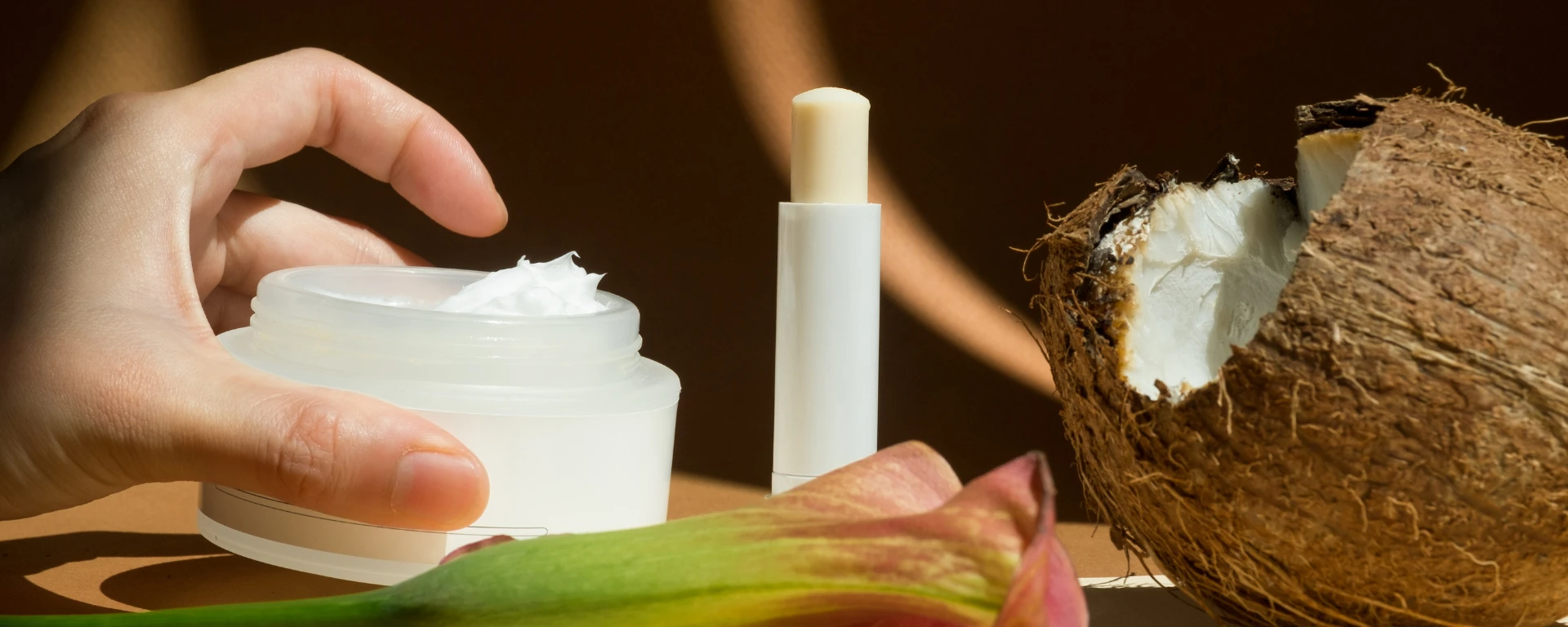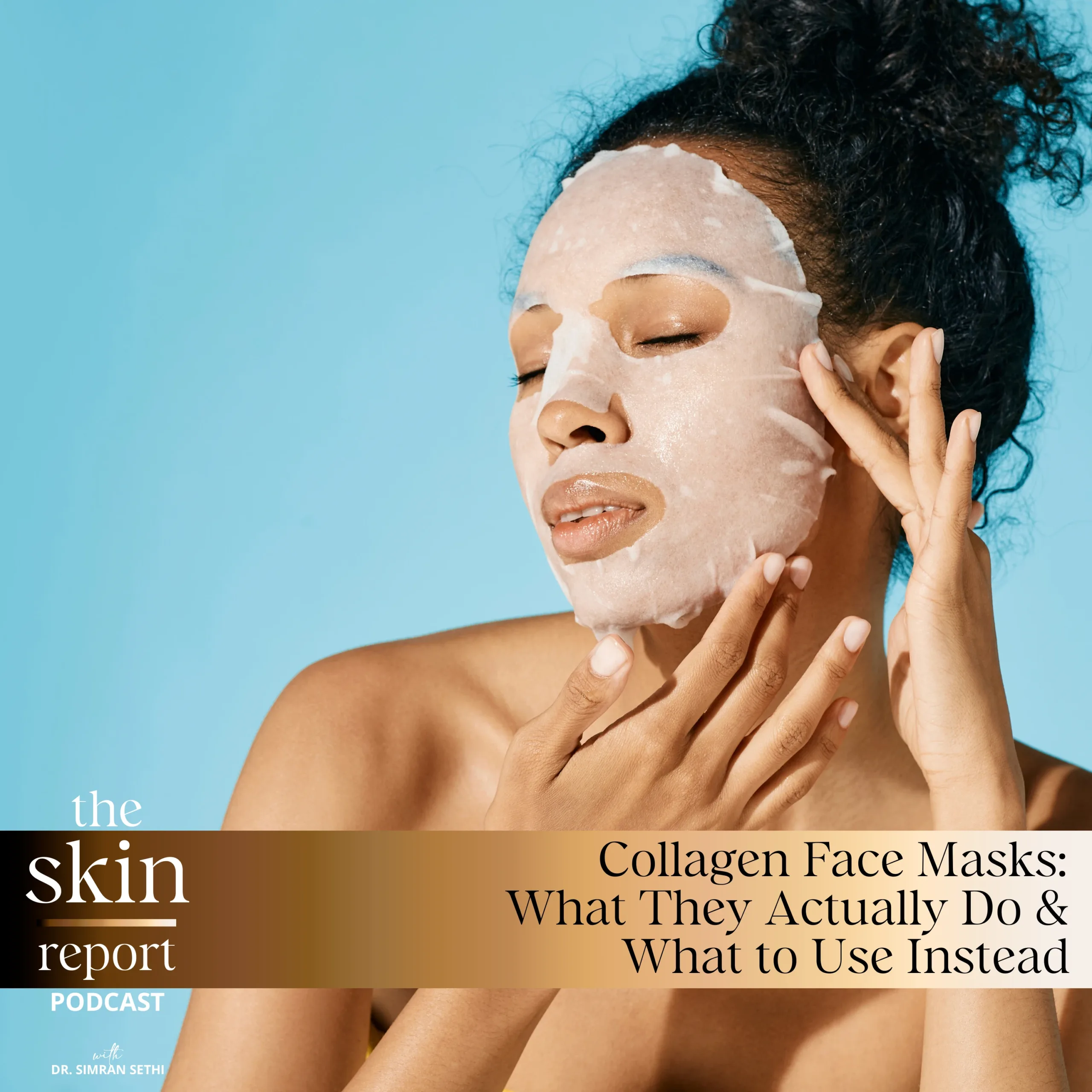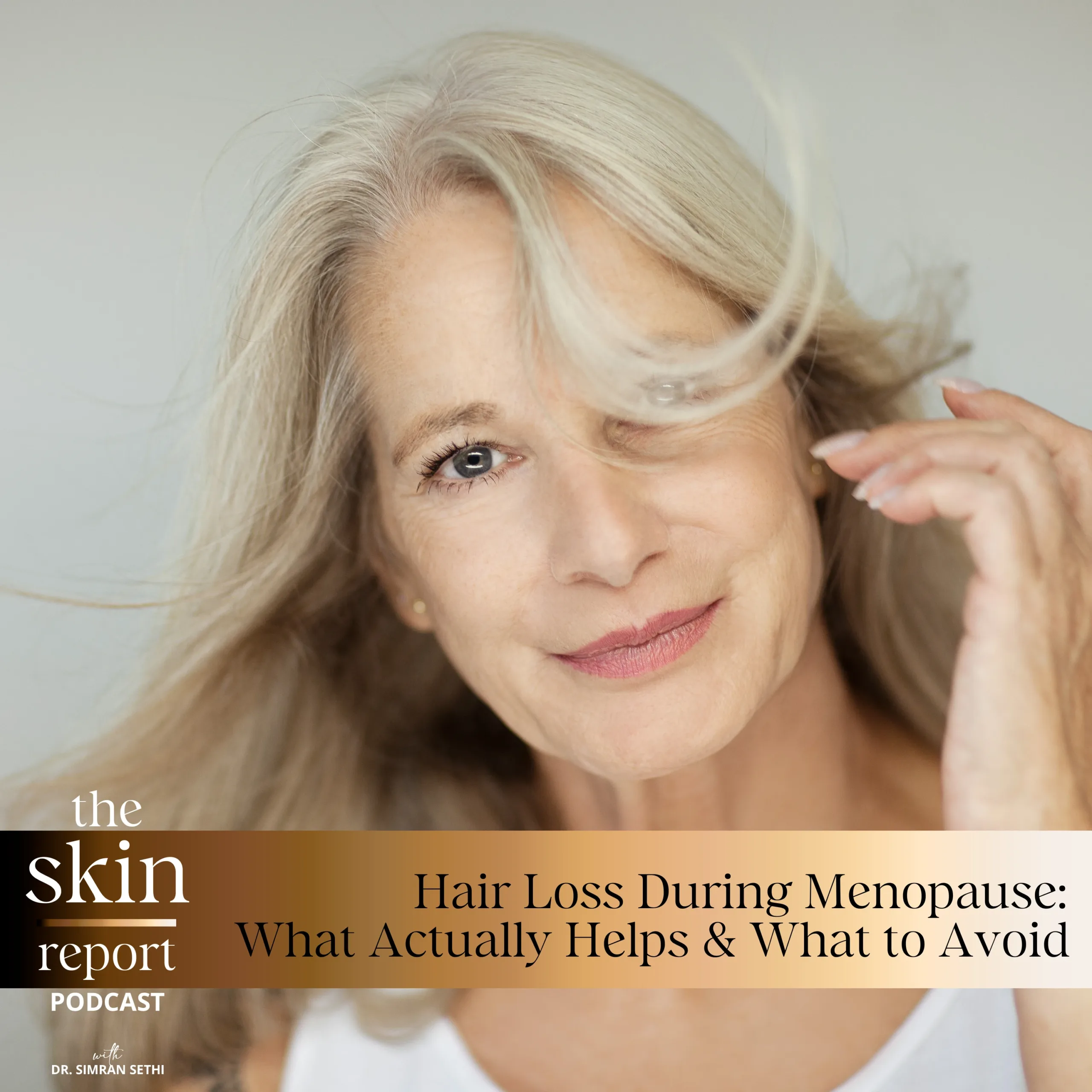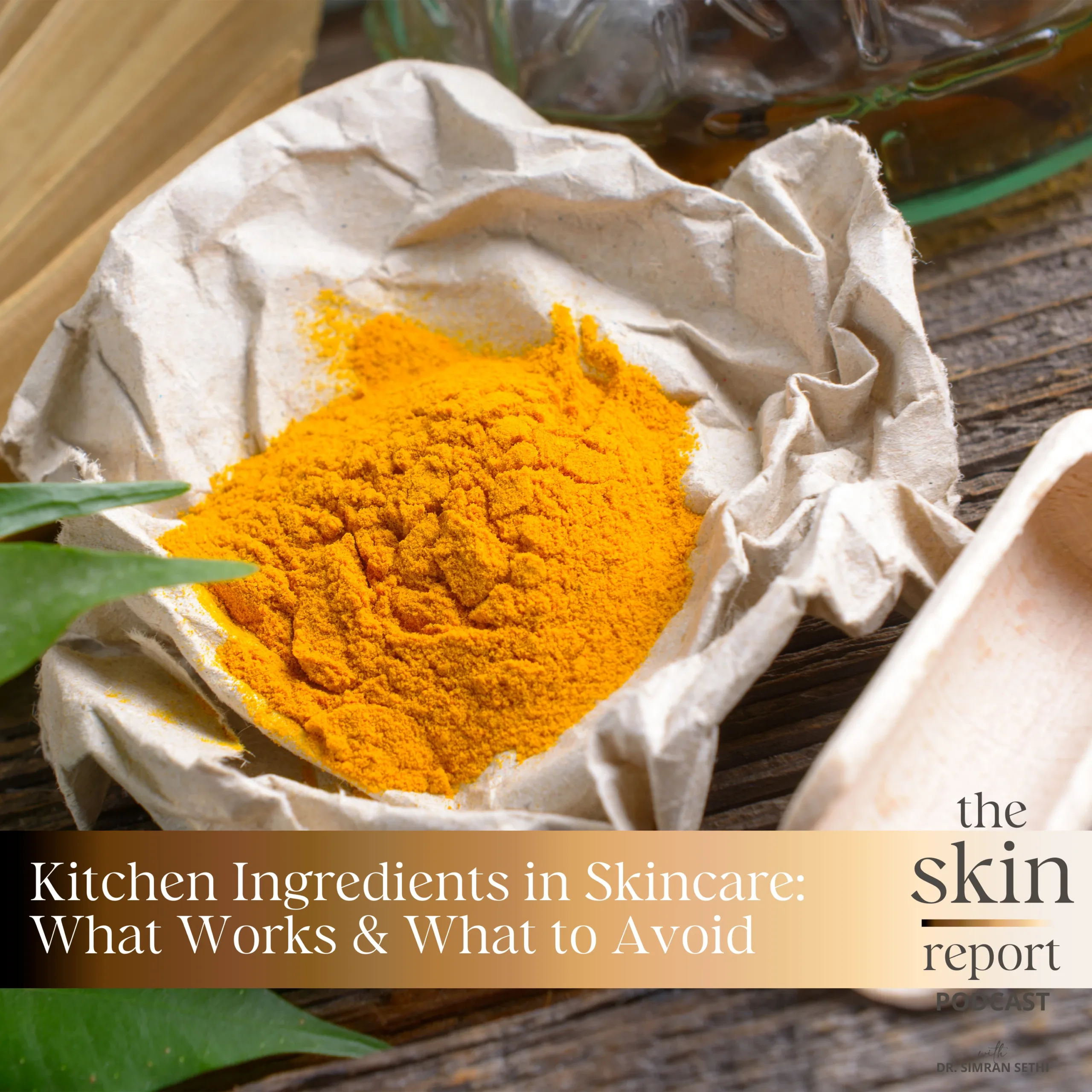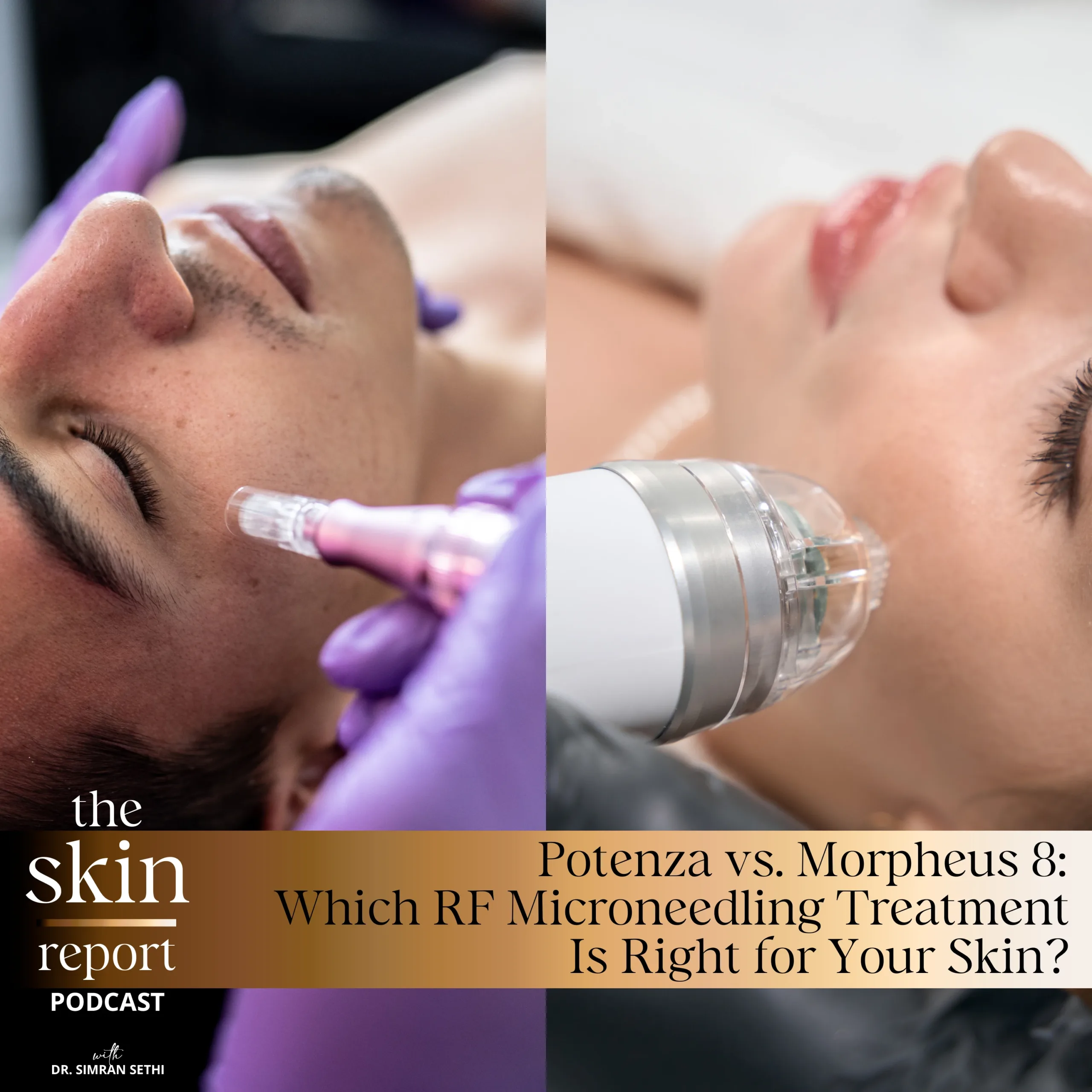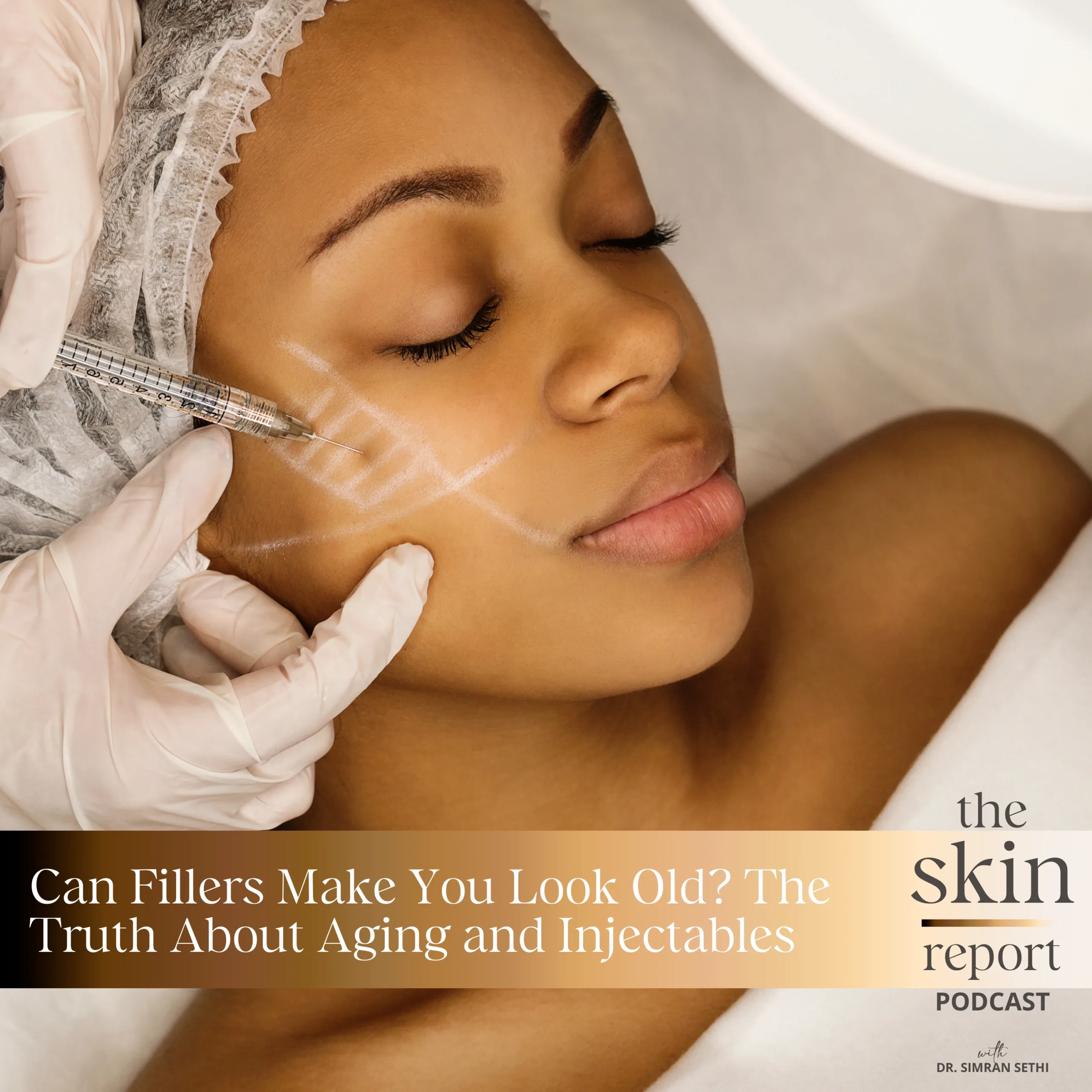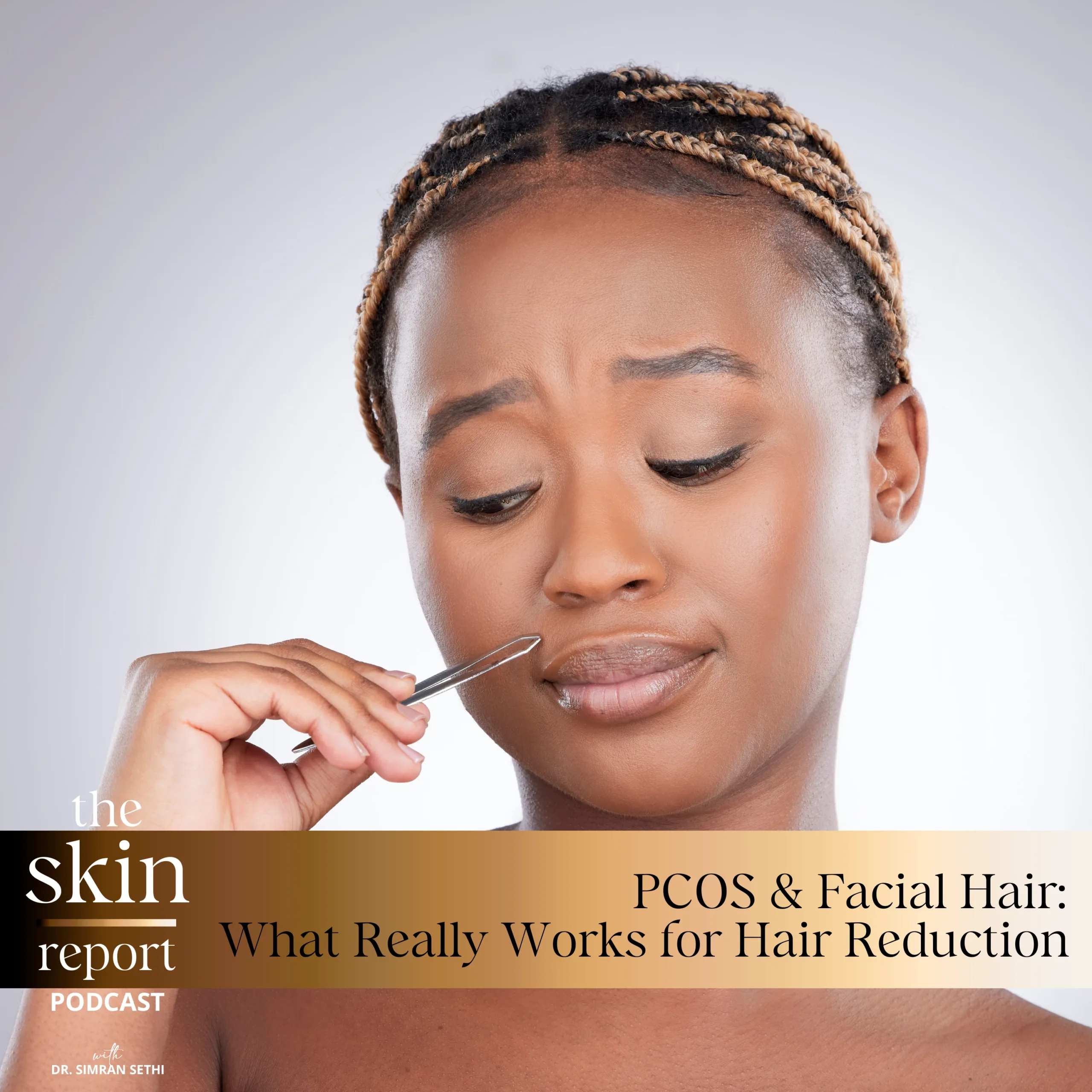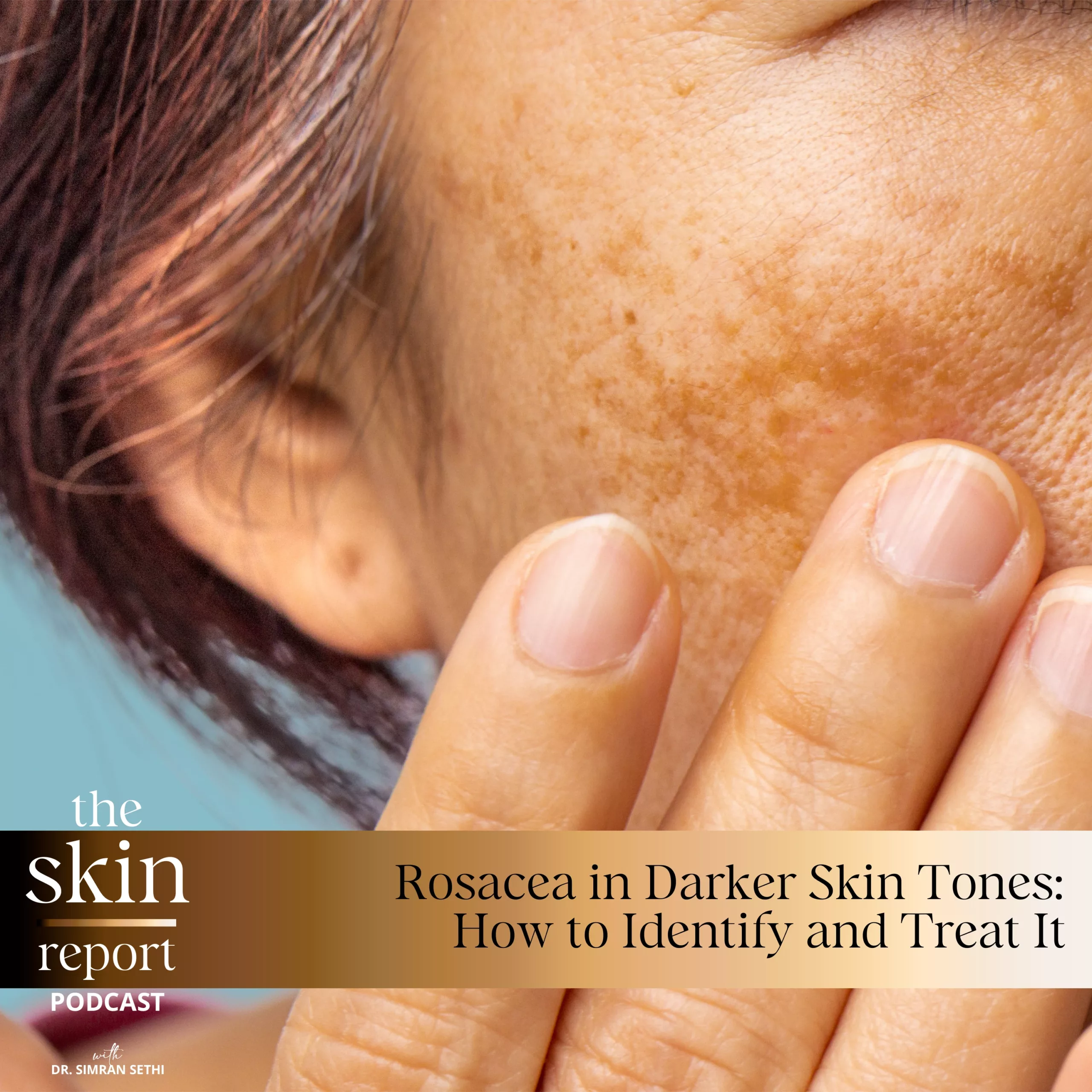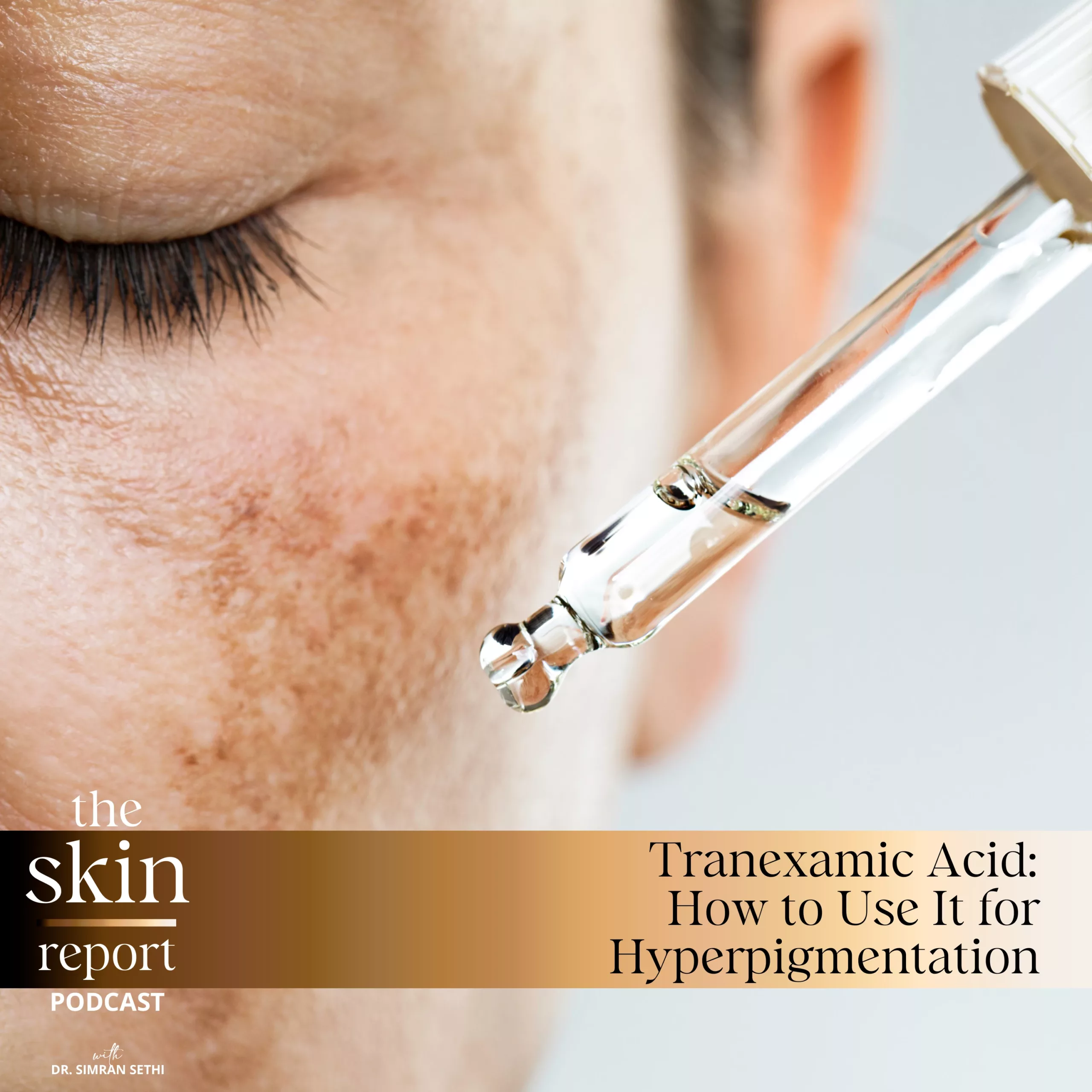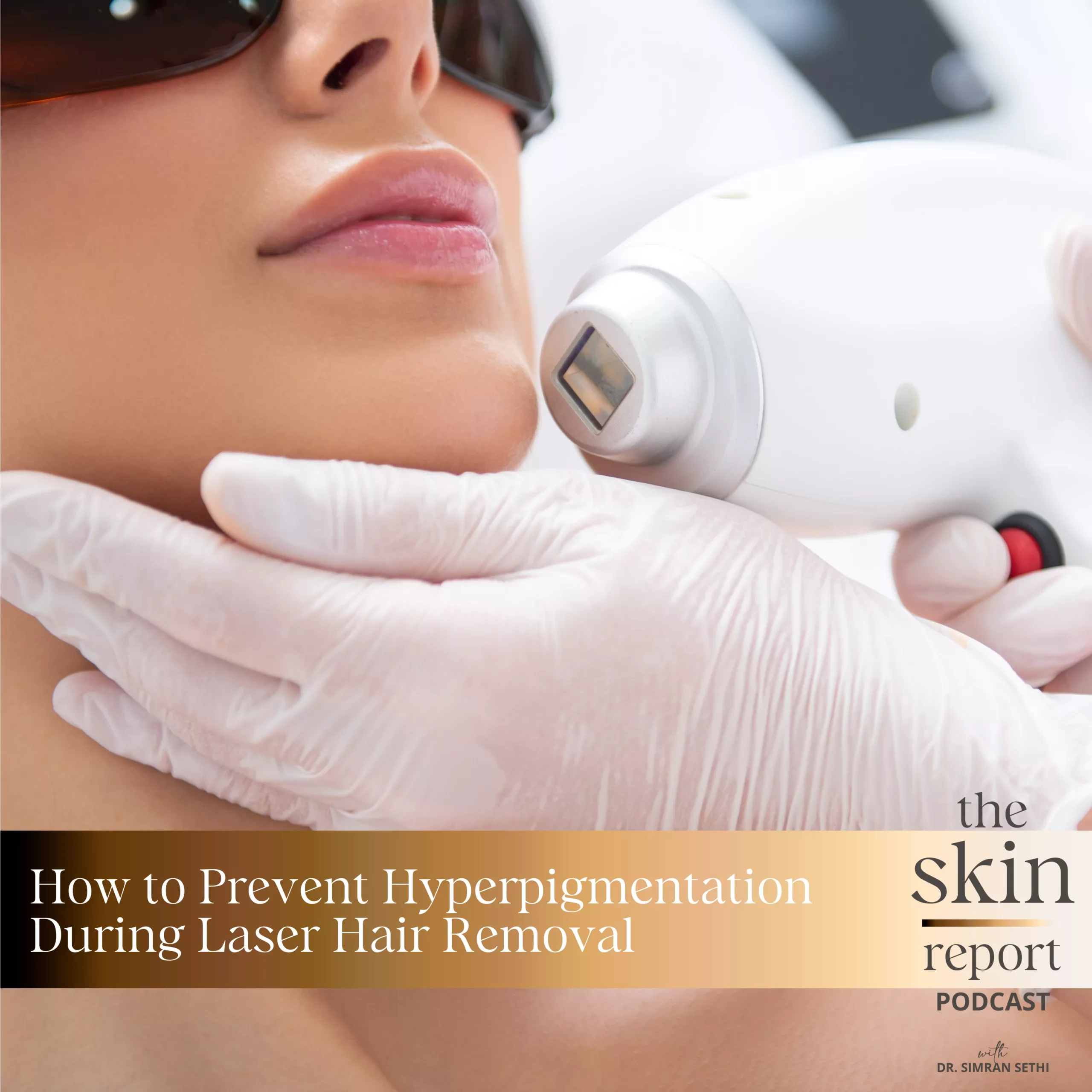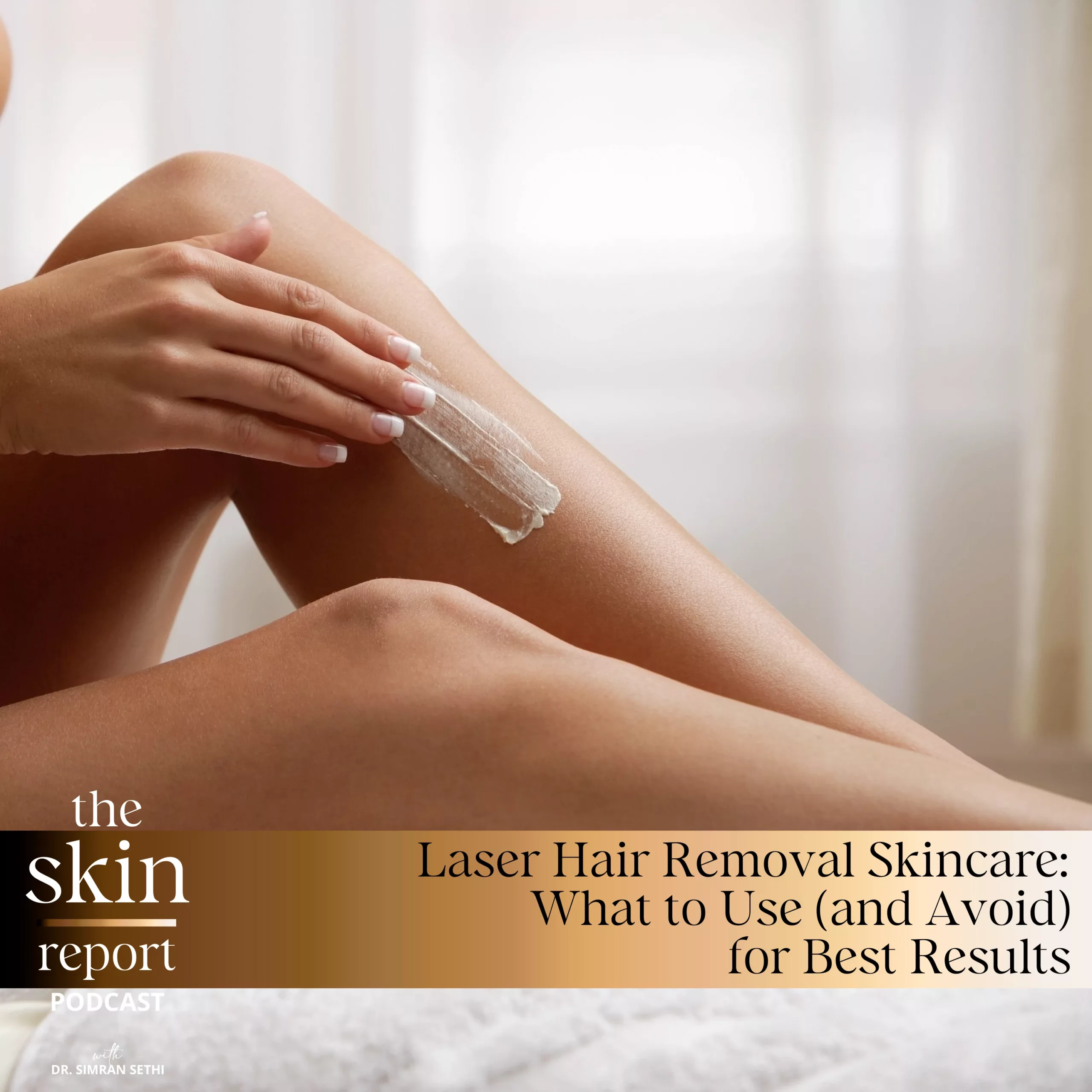Hello everyone. Welcome back to The SKIN Report. We are going to talk about a trending topic, adaptogenic skincare. I get a lot of questions about this, and I’ve been getting more recently, so let’s break it down. What is adaptogenic skincare? What ingredients are adaptogens that are used in skincare? When is it beneficial? Are there any side effects? Who should not use adaptogenic skincare? And can it be used especially in conditions like acne or hyperpigmentation? I’m Dr. Simran Sethi. I’m a board-certified internal medicine doctor who also specializes in medical aesthetics. Let’s get started with today’s topic.
Adaptogens are basically plants, herbs, that help the body fight environmental stressors. That is also why having adaptogens in your skincare is great because it’s going to help protect your skin from this constant exposure to the environment. When you think about adaptogenic skincare, you’re probably thinking, “Oh, should I get a skincare product that is called an adaptogenic skincare product?” There is no such thing. And after we go through the ingredients or the type of ingredients that make up adaptogenic skincare, you might realize that you are already using something that is adaptogenic, which is great. But let’s talk about what are the different ingredients that make a product adaptogenic.
Common skincare ingredients that you’ll find include mushroom extracts, like reishi, snow mushroom, kojic acid. Other common ones are coconut oil, turmeric, different types of algae, marine algae. All of these ingredients have actually existed in skincare for a long time, and depending on the adaptogen, they perform differently. Adaptogens are things that people take in oral supplements, in drinks, in teas. And in skincare, they play an important role of helping your body fight environmental stressors, which means that if you know what particular stressor the adaptogen is fighting, you can incorporate it based on what kind of skin issue you have.
There is so many skin issues and so many adaptogens that address all of them. So I’m going to start with one of the most common skin issues, acne. Acne is an inflammatory condition, which means that it’s always undergoing some form of stress. And people who have acne also are prone to over-drying their skin, because a lot of acne products will reduce grease and oil in the skin, so then the skin can start getting overdried or their skin barrier is broken from just having a lot of breakouts. So adaptogens that help with absorption of more water and prevention of water loss are an excellent solution for people who are acne-prone. Those adaptogens include mushroom extracts like reishi, snow mushroom extract. They are very good at helping your skin hold on to moisture and hydration, and that is excellent for somebody who has acne and a broken skin barrier.
If you are suffering from hyperpigmentation, which could be caused by acne you’ve had in the past or something like melasma or just sun damage, adaptogens that help with hydration and with inducing more skin cell turnover and building newer and more clearer skin are a good solution. So again, hydration, snow mushroom extract, even coconut oil. And then things that induce more skin cell turnover and better collagen and more collagen building are marine algae, which there are so many different kinds you will find in a lot of products that are a little more anti-aging-focused. So those two categories of adaptogens are great choices.
And then finally, if you have normal skin and you just want to give your skin something to protect it from environmental damage, and actually, I’ll take that back. Not just normal skin, but any skin type, if you want to fight environmental damage that we sustain all the time, night and day, indoors and outdoors, which is blue light, then I would say ashwagandha is an excellent adaptogen to put in your skin care routine. And ashwagandha is something that I find is more commonly found in skincare products today than it was even five years ago.
Just like any skincare, if you want to see results with adaptogenic skincare products, you do need to give it some time. I would say a good amount of time is four to six weeks. If you’ve used a product for four to six weeks, you should start noticing that your skin is smoother, maybe clearer, but it also takes using that product consistently, at least twice a day in most cases, to see results. There aren’t really too many people who have side effects from using adaptogens because they are mostly botanicals, but of course, if somebody has a rare allergy to a particular botanical, they will have an allergic response. But that, again, would be exceedingly rare.
Please let me know if you have any questions or comments. And remember, subscribe, turn on your notifications, so that you always know when we release fresh content.

